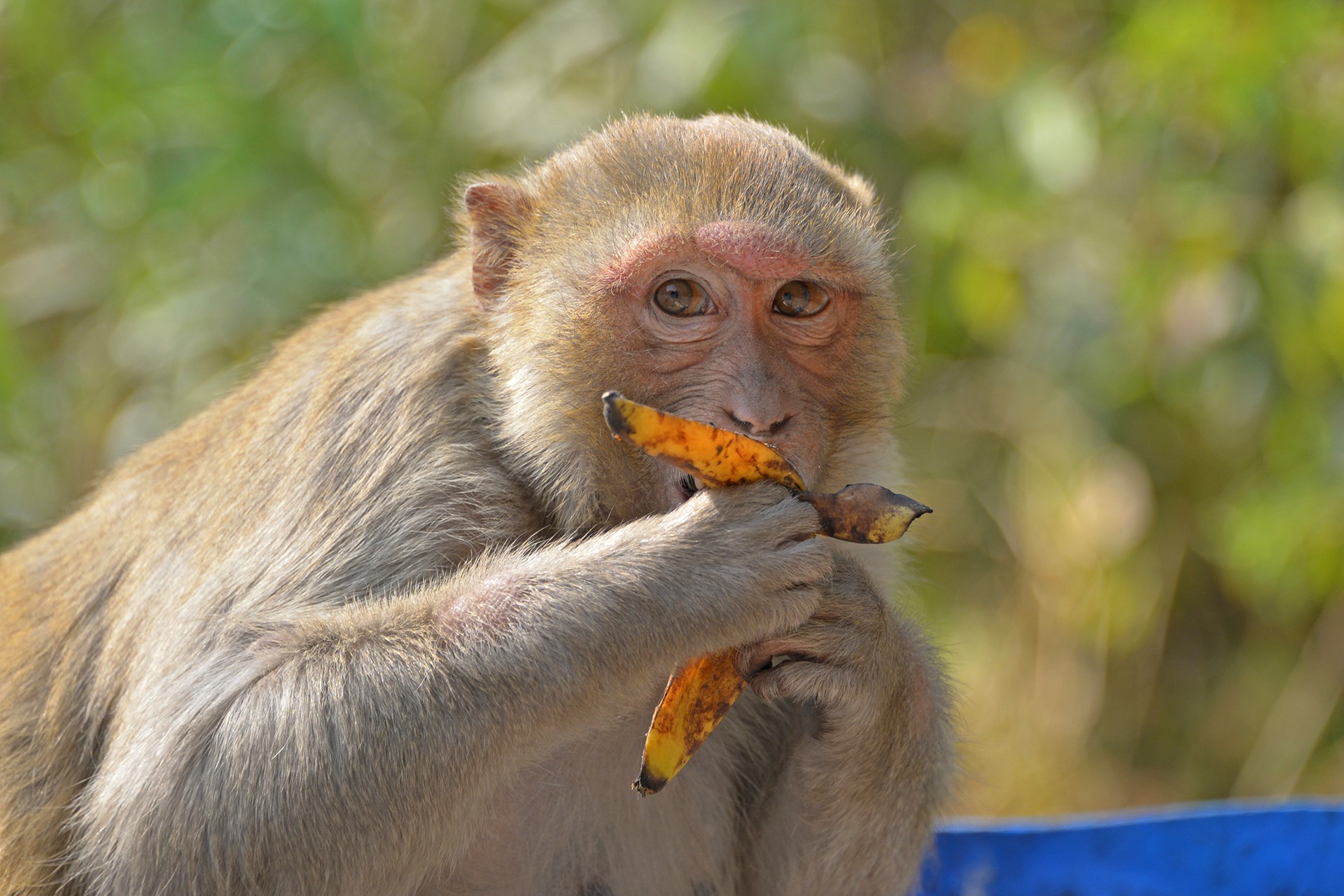This is the fourth story in a series of articles on frugivory and seed dispersal, leading up to the FSD 2020 symposium in March next year.
Have you ever fed a monkey? Or, technically speaking, ‘provisioned’ one? You may have lovingly thrown a biscuit or two at them and watched them devour it in a matter of seconds. Or, you may have discarded that ice-cream you could not finish and moments later seen a monkey retrieve it and lick away.
Provisioning of non-human primates (primates henceforth) by humans is a socio-religious practice in many Asian countries. The effects of such anthropogenic food subsidies on primates are diverse and may range from changes in body size and fertility at the individual level to modified foraging and ranging behaviours at the population level. Although the importance of food resources as drivers for primate ecology and behaviour is well-documented, few studies have dealt with the influence of provisioning on primate ecological functions – and that is what Prof. Sindhu Radhakrishna, Dr Kim McConkey and I set out to understand.
The Rhesus Macaque (Macaca mulatta) has the largest geographical range among primates. At the Buxa Tiger Reserve, India, we observed a group of forest-dwelling Rhesus Macaques (Troop C) which was highly frugivorous and acted as seed dispersers all year-round. Overall, the macaques dispersed the seeds of 43 species, either by defecation or spitting. The majority of the handled seeds were undamaged, and for many species, seeds handled by the macaques had enhanced germination. Almost 50% of the monitored seeds germinated in situ (on the site itself) and 22% established seedlings at the end of a year, showing that Rhesus Macaques can be important seed dispersers in tropical forests.
A year later, we observed another group of Rhesus Macaques (Troop D) in the same reserve. This group was provisioned by tourists for a part of the year, but when the reserve was closed to visitors during the monsoon, the macaques would consume natural food. The presence of a primate group that was provisioned for only a part of the year provided us with a quasi-experimental setup, wherein we tested the effects of provisioning on the role of primates as seed dispersers.
We found that irrespective of natural fruit availability, fruit consumption by the macaques reduced by 42% when they were provisioned by people. The number of seed dispersal events also decreased by about 50% during this period. A considerable proportion of seeds were also deposited by the macaques on tarmac traffic-heavy roads which precluded seed germination; the macaques spent more time here as they were often thrown food by tourists in vehicles passing by.
While fruits comprised over 79% of the diet of Troop C across the year, fruits constituted only 46% of the diet of Troop D. Unlike Troop D, which often deposited seeds on roads, all the seeds handled by Troop C were deposited on the forest floor. The mean travel distance of Troop C was also 2.5 times greater than that of Troop D; this indicates that seeds were dispersed to shorter distances by Troop D. In theory, the greater the distance between the parent tree and the seed deposition site, the greater the chance of seed survival. The data distinctly shows how provisioning can detrimentally affect the role of Rhesus Macaques as seed dispersers.
The Rhesus Macaques are known to be highly resilient and will survive in the Anthropocene. But whether they will have any seeds to disperse in the future depends on whether we choose to keep our forests undisturbed and stop interfering with their ecology. Also, will the forests survive if these primates are not feeding on fruits and dispersing its seeds?
The original paper can be found here.



